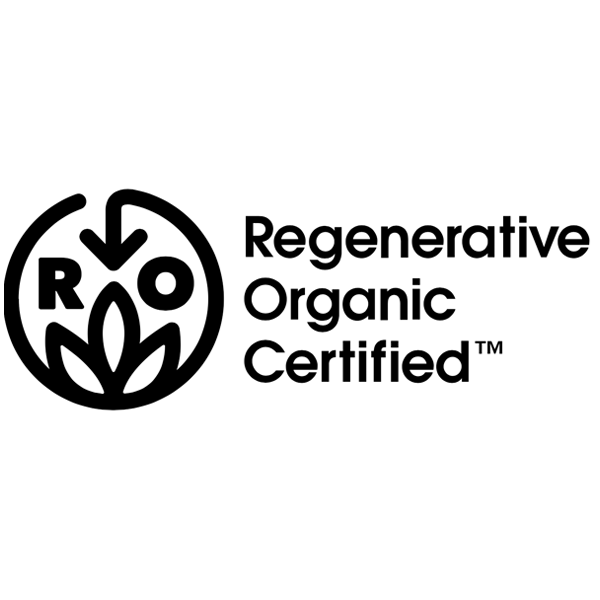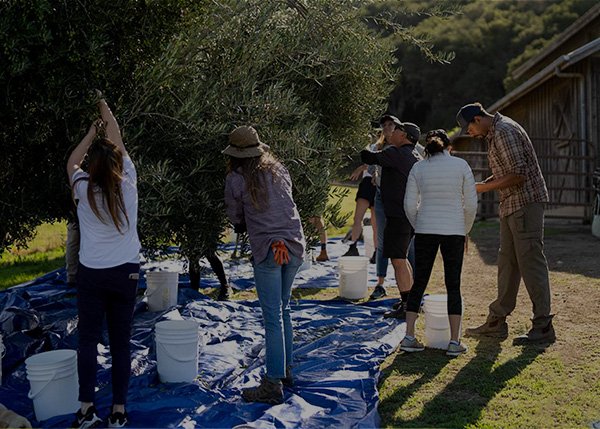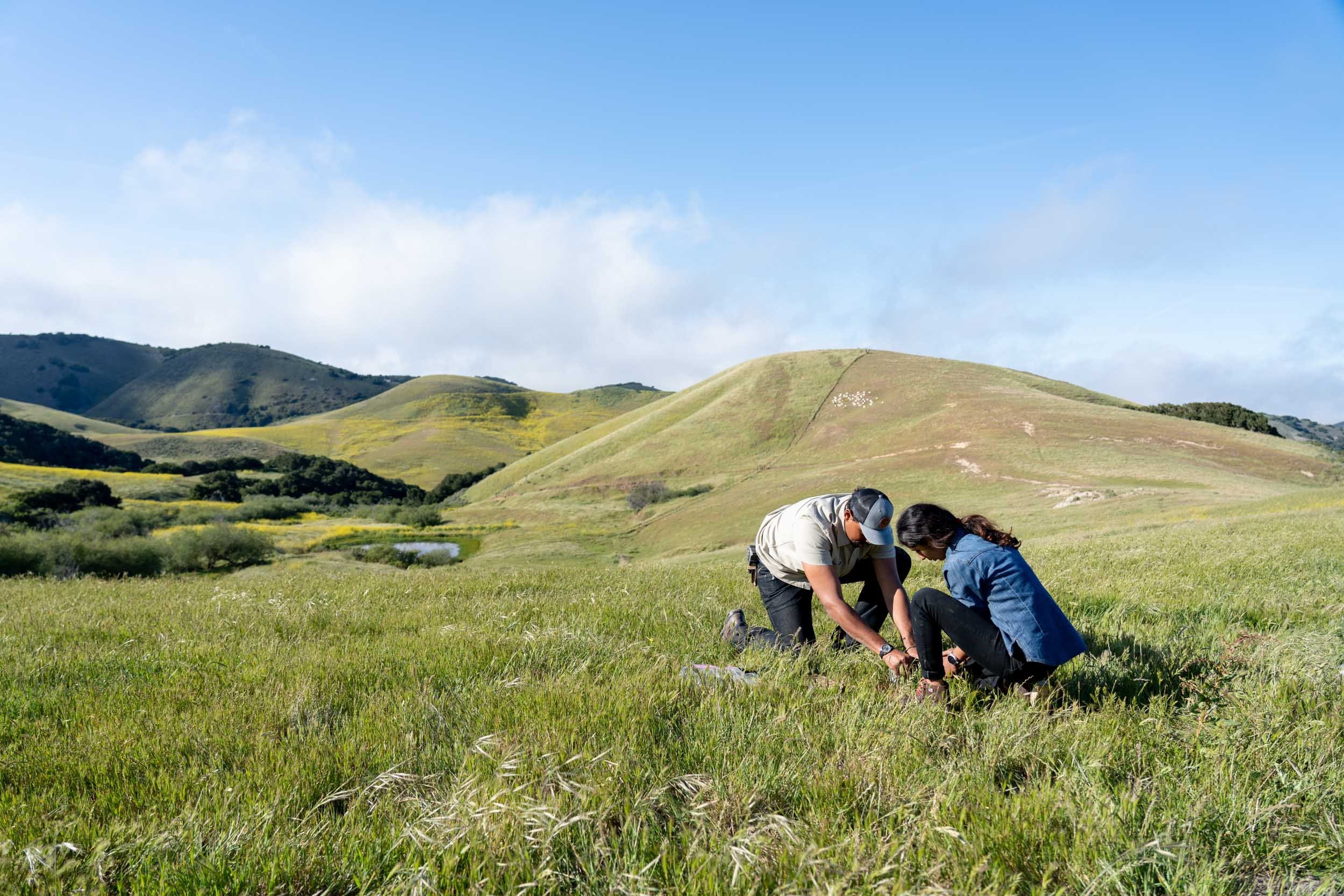
Research & Monitoring
Ecological monitoring is the repeated measurement of physical, biological and chemical properties over time to provide information on ecological change.
We monitor our food and other living systems to better understand the relationships between our practices and ecological outcomes. The data and observations collected increase our ability to grow food and fiber while supporting increased ecological health and contributing to the collective efforts toward climate stabilization and resilience.
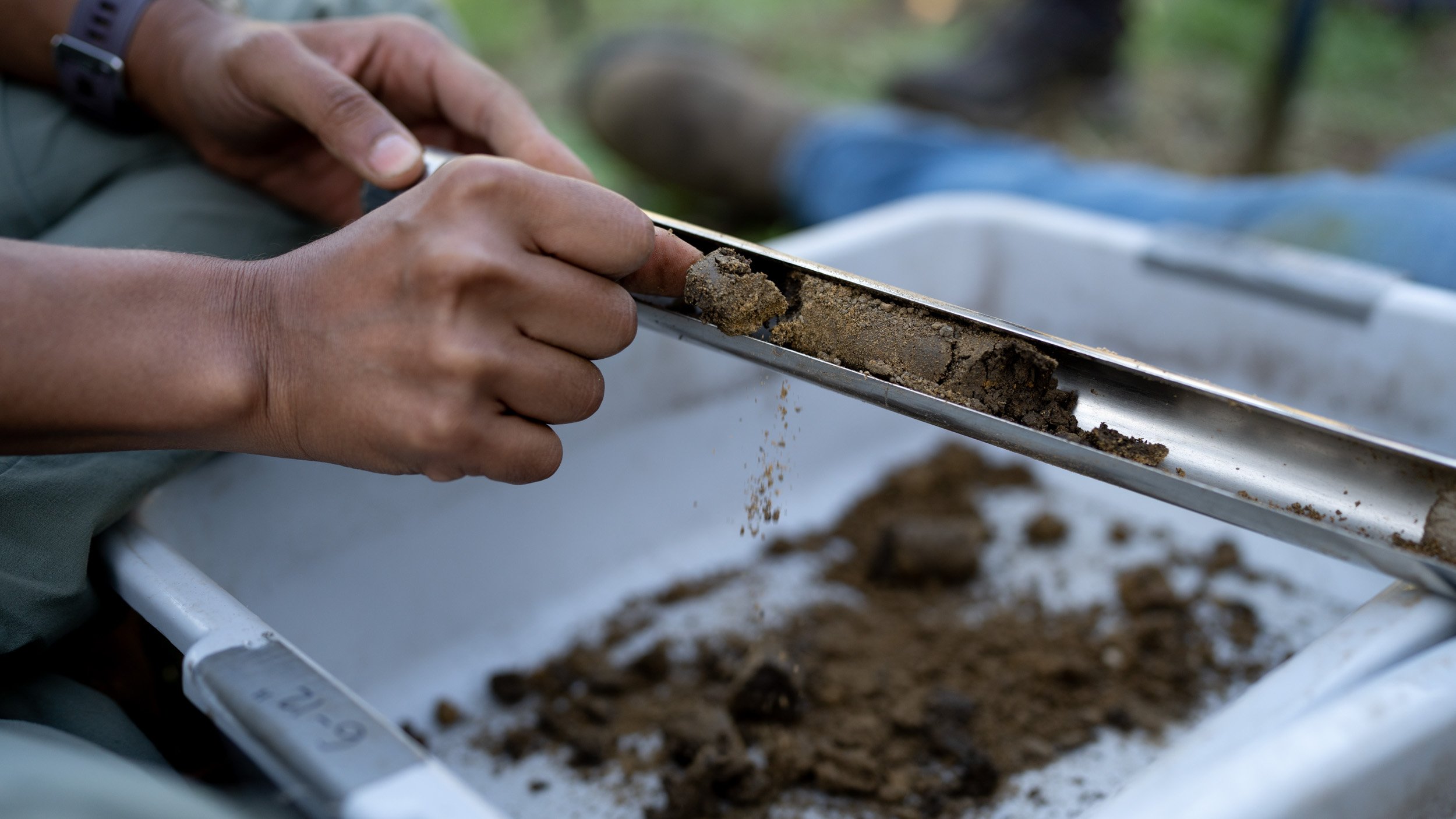
How We Monitor Ecological Health
We monitor the health of our land through the lens of soil, water and biodiversity, all with a focus on informing the effectiveness of our practices on desired outcomes. Our methods are diverse and include collecting data in the field using peer reviewed technology and protocols, installing sensors to collect continuous field data, and exploring the use of remotely sensed data.
While vital, ecological monitoring can also be costly and a drain on human resources. JCR serves as a test bed for innovative, efficient and context specific monitoring protocols and technology. We then work with land stewards in our training courses to communicate which monitoring methods would be most effective for their land and operation.
Certifications, Verifications & Credits
Ecological Outcome Verification™ (EOV™)
Ecological Outcome Verification (EOV) is the protocol for monitoring land and ecological health in service of the Savory Institute’s Land to Market Certification. Since taking over stewardship of Jalama Canyon Ranch in April 2021, we have used this protocol to increase our understanding of the state of ecological health across the ranch and the barriers to improving ecological health. We have piloted the EOV protocol in The Almond Project to monitor the ecological health of almond orchards under different management practices.
Regenerative Organic Certification™ (ROC™)
The Regenerative Organic Certification (ROC) is a certification standard for food, textiles and personal care that assesses the impacts of agricultural practices on soil health, animal welfare and social fairness. The USDA’s Organic certification is a baseline requirement for the ROC certification. We use ROC to monitor the impacts of regenerative viticultural practices such as cover cropping, no till, and application of organic amendments (learn more about our fish hydrolysate!) on soil biology, soil carbon sequestration, soil water retention, and reduced erosion.
Soil Carbon Initiative (SCI)
The Soil Carbon Initiative (SCI) is a commitment and verification program that empowers and incentivizes farmers and the food supply chain to transition acres to regenerative management to maximize regenerative outcomes - soil health, biodiversity, water quality, climate resiliency and boost farm and rural community economics. We are working with SCI to monitor the impacts of regenerative practices on vineyard soil health.
Regen Network
The Regen Network is addressing the climate crisis by connecting buyers of ecosystem services with land stewards restoring ecosystem services through regenerative agriculture. The ecological benefits of regenerative grazing, such as carbon sequestration, improved water holding capacity and increased biodiversity, continue to be studied and quantified. In early 2022, WBLT was awarded a grant through the Regen Network’s Community Funding Program to adapt their protocol to quantify carbon sequestration and its co-benefits in mediterranean grasslands such as those found at Jalama Canyon Ranch. We have since quantified carbon stocks and soil health metrics at 30 locations across our rangelands, and will continue monitoring these locations to develop insights on the impacts of holistic grazing.
Research Initiatives at Jalama Canyon Ranch
We are partnering with research institutions from across the country to deepen the understanding of ecological processes in regeneratively managed lands.
Methane Sequestration in Soils
Methane is a highly potent greenhouse gas, warming the planet over 80 times as much as carbon dioxide over a 20 year period. Atmospheric methane concentrations have more than doubled from human activity and account for ~25% of modern greenhouse gas warming. The consumption of methane by microorganisms in soil, or methanotrophy, is the only terrestrial sink of methane. However, the methanotrophy potential of ecosystems in arid regions is not well understood. We are participating in a 2-year study led by researchers from Caltech to measure methane consumption by soil microorganisms across multiple ecosystems and land management practices. This ongoing project will create the largest dataset on soil methanotrophy from the western U.S. to date, and will help inform past, present and future carbon and greenhouse budgets.
The Soil Inventory Project
The Soil Inventory Project (TSIP) is building a time-and cost-effective system to quantify the impacts of agricultural practices on soil carbon sequestration. Field measurements of soil carbon can often be a barrier to quantifying soil carbon sequestration in agricultural lands. For example, a greater number of soil samples across a site corresponds to a more accurate measurement of soil properties across the site. However, this can increase both the labor and lab costs. Understanding the optimal number of soil samples that accurately capture soil properties, while reducing sampling costs is essential to incentivizing carbon sequestration in agricultural lands. Our work with the TSIP team is part of a larger effort in the regenerative movement towards creating an efficient, reliable and accessible soil sampling methodology for land stewards.
SUNY-ESF
Riparian habitats support the highest density and abundance of plants and animals of any habitat type in the American Southwest (source). They can mitigate downstream sediment impacts, reduce erosion, mitigate floods, and recharge groundwater systems. However, the health and function of riparian habitats are threatened by increasingly frequent and severe drought conditions (source). Researchers from SUNY-ESF collected tree cores from riparian habitats at Jalama Canyon Ranch, amongst multiple properties in Mediterranean climates to study the impact of drought on species such as cottonwood, sycamore and coast live oak. This work is essential for identifying land management and conservation strategies to mitigate drought impacts on riparian habitats.
Soil Carbon & Watershed Health Indices
We have partnered with the Bren School of Environmental Science and Management at UC Santa Barbara to give “real world” experience to graduate students in bridging knowledge gaps between research institutions, ecosystem service markets, and regenerative agriculture practitioners. Through this partnership, we are working to increase the accessibility of ecological measurement tools that demonstrate the benefits of regenerative agriculture and encourage farmers to adopt regenerative practices.
Biodiversity Monitoring
Launched in 2020, GrizzlyCorps is a AmeriCorps fellowship designed by Project Climate at UC Berkeley’s Center for Law, Energy & the Environment in partnership with CaliforniaVolunteers. This program connects recent college graduates with rural communities across California to promote regenerative agri-food systems and fire and forest resilience. Our GrizzlyCorp fellow is developing protocols for monitoring biodiversity at JCR, so critical as we evaluate the effectiveness of our transition of our land from conventional to regenerative practices across multiple variables.
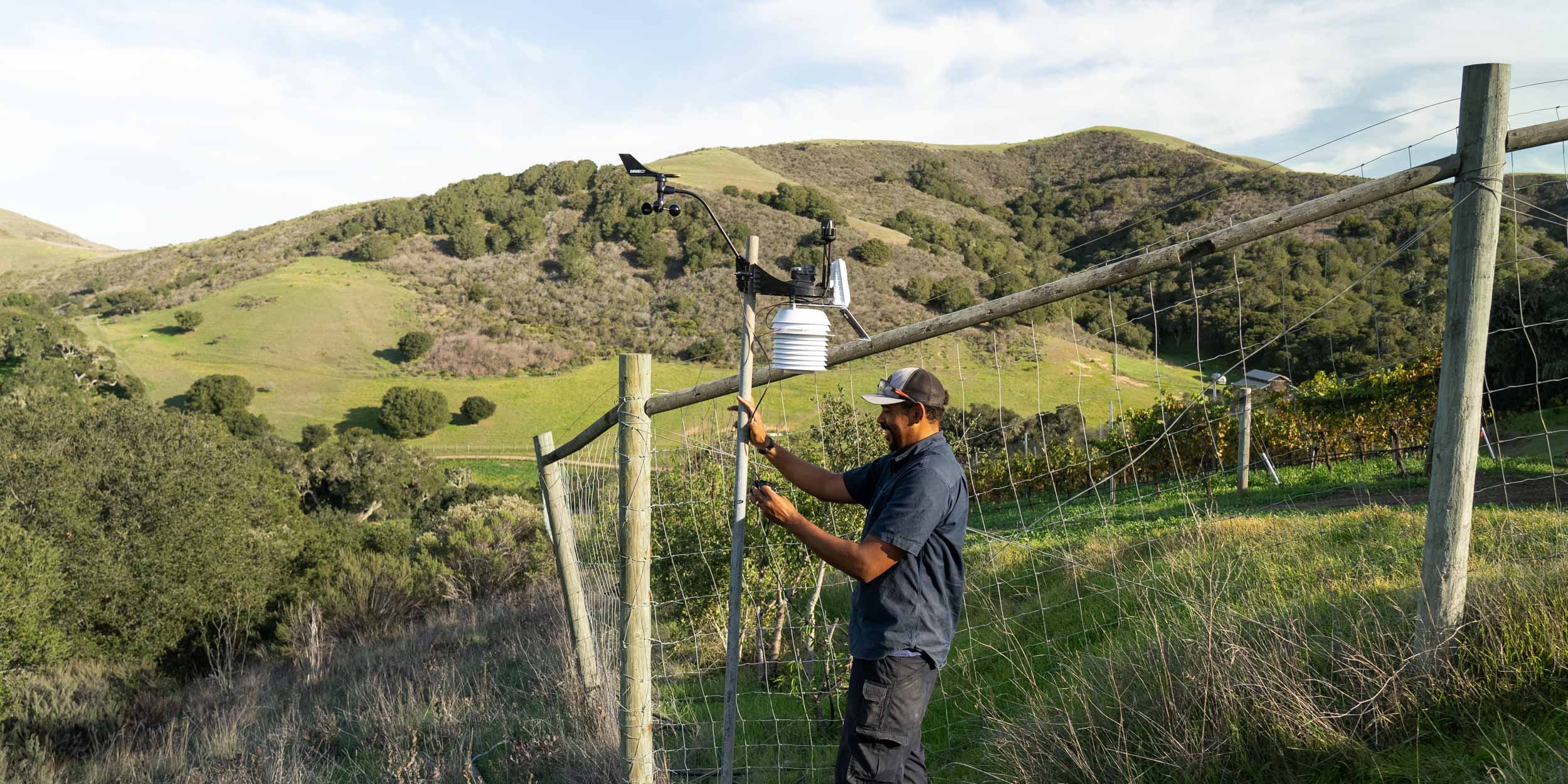
Sign Up for Our Emails
Stay current on what’s happening with our projects and be the first to know of opportunities to engage and get involved!


